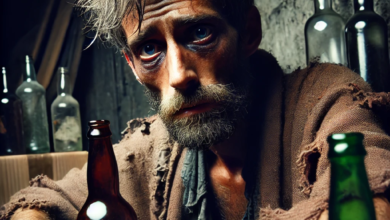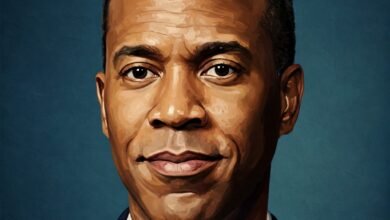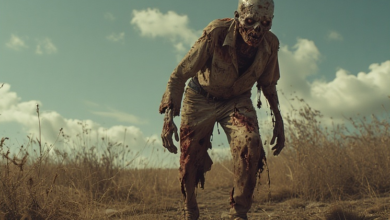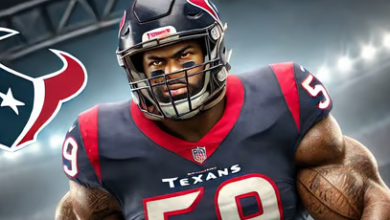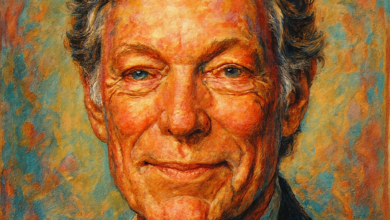The Walking Dead: A Deep Dive into the Iconic TV Series

Introduction to The Walking Dead
The Walking Dead is a television series that has significantly influenced the horror and drama genres since its debut on October 31, 2010. Based on the eponymous comic book series created by Robert Kirkman, Tony Moore, and Charlie Adlard, the show offers a gripping narrative set in a post-apocalyptic world overrun by zombies, often referred to as “walkers.” Kirkman’s original comics, launched in 2003, laid a robust foundation for the series, exploring themes of survival, morality, and humanity in crisis.
Upon its release, the series received widespread acclaim, with particular praise directed at its character arcs and the moral dilemmas faced by the survivors. The show’s success led to numerous awards and nominations, further solidifying its place in television history. At its peak, The Walking Dead garnered a massive viewership, becoming one of the most-watched cable programs in the United States.
The initial impact of The Walking Dead on the television landscape cannot be understated. It ushered in a new era of apocalyptic storytelling, paving the way for other series that have attempted to replicate its success. With multiple spin-offs and related media expanding its universe, The Walking Dead remains a cultural phenomenon, captivating audiences worldwide and ensuring its legacy in television history.
Plot Summary and Major Themes
The Walking Dead, a groundbreaking television series based on the comic book series by Robert Kirkman, immerses viewers in a harrowing post-apocalyptic America overrun by zombies. The narrative predominantly follows Sheriff Deputy Rick Grimes, who awakens from a coma to discover a world transformed by a catastrophic viral outbreak. As he searches for his family, Rick encounters other survivors who are struggling to endure in this hostile environment. The series chronicles the evolution of not only Rick but also a diverse ensemble of characters, including Daryl Dixon, Michonne, and Carol Peletier, whose journeys illustrate the manifold challenges posed by this grim reality.
Throughout its run, the show deftly intertwines major themes that resonate with audiences. Foremost among these is the theme of survival; characters continually face adversities, whether from the undead or fellow survivors, compelling them to adapt and evolve. The series highlights the lengths to which individuals will go to protect those they love, shedding light on the innate instinct ingrained in humanity. The Walking Dead also probes into the intricacies of the human condition, showcasing the emotional turmoil, psychological strains, and ethical dilemmas that arise when societal structures crumble.
Another significant theme is morality, spotlighting the choices that test the characters’ humanity and values. Decisions made in moments of desperation often lead to profound moral quandaries, where the distinction between right and wrong becomes increasingly ambiguous. Additionally, community plays a pivotal role; as survival strategies shift from isolation to collective cooperation, the dynamics of trust and betrayal manifest within group settings. Ultimately, these themes form the emotional backbone of The Walking Dead, leading viewers to contemplate the fragility of civilization and what it truly means to be human amidst chaos.
Character Development: Key Figures in The Walking Dead
The Walking Dead presents a rich tapestry of character development that evolves significantly throughout its seasons. At the forefront is Rick Grimes, whose transformation from a small-town sheriff to a ruthless leader exemplifies the moral complexity and harrowing choices faced by survivors in a post-apocalyptic world. His journey holds a mirror to humanity’s struggle in the face of overwhelming despair, characterized by pivotal moments such as his profound loss and subsequent grappling with authority and morality in the absence of societal norms.
Equally compelling is Michonne, a character who evolves from a solitary warrior to a vital member of the group. Her journey begins with a desire for vengeance and survival, but over time, she becomes a central figure embodying themes of loyalty and hope. Michonne’s relationships, particularly her bond with Rick and Judith, underscore her transformative role and highlight the importance of community in a desolate world. The complexity of her character arc not only reflects personal growth but also addresses broader themes of trauma and healing, demonstrating the resilience of the human spirit.
Daryl Dixon, another key character, presents an intriguing arc defined by his initial isolation and subsequent evolution into a leader. His rugged exterior hides layers of vulnerability and fear, which he confronts as he forges deep bonds with other survivors. Daryl’s journey, marked by grief and loyalty, showcases the nuances of masculinity in crisis, illustrating how relationships can drive personal transformation. Additionally, the characters of Carol Peletier and Negan add depth to the narrative, each representing distinct responses to loss and survival. Carol’s evolution from a timid victim to a fierce protector emphasizes the potential for resilience, while Negan’s complex morality challenges the viewer’s perception of villainy.
Through these richly developed characters, The Walking Dead invites viewers to reflect on profound questions about survival, community, and what it means to remain human in a world stripped of civilization. The transformative journeys of these key figures illustrate the series’ exploration of human nature amidst chaos and uncertainty, establishing a connection that resonates deeply with the audience.
The Evolution of Zombies in The Walking Dead
The portrayal of zombies, commonly referred to as walkers in The Walking Dead, has undergone significant evolution throughout the series. Initially introduced as mindless, flesh-eating creatures, these zombies have gradually transformed into reflective representations of deeper societal fears, serving as a commentary on the human condition and societal breakdown. Their characteristics are influenced by historical and cultural representations of the undead, drawing from a rich tapestry of folklore and cinema that predates the series itself.
In early episodes, the walkers exhibit typical traits associated with zombie lore; they are slow, lumbering figures devoid of humanity. However, as the series progresses, the depiction of these creatures becomes increasingly complex. They are not merely mindless monsters; instead, they become symbols of the fragility of civilization. This nuance can be linked to the long-standing cultural themes surrounding the undead, particularly in horror fiction, where zombies often reflect anxieties about disease, loss of identity, and societal collapse.
Moreover, The Walking Dead amplifies these zombies’ roles by intertwining their existence with human stories. The emotional weight carried by the characters showcases the internal struggles faced by the living, reflecting the fears of morality and survival in a post-apocalyptic world. The walkers serve as a backdrop to existential questions concerning what it means to be human amidst chaos. The series illustrates how the presence of the undead magnifies the decay of societal norms, forcing characters to confront their morals and relationships.
Through this lens, the evolution of zombies in The Walking Dead transcends their traditional portrayal. They become not only a frightening foe but a mirror reflecting the fears and challenges of contemporary society. This multifaceted depiction encourages viewers to consider deeper messages while remaining entertained by the thrilling horror elements that define this iconic series.
The Walking Dead’s Influence on Popular Culture
The Walking Dead, since its debut in 2010, has emerged as a cultural phenomenon, profoundly impacting various facets of popular culture. The show’s gripping narrative centered around a post-apocalyptic world teeming with zombies has not only captivated audiences but has also sparked discussions about morality, survival, and human relationships in extreme circumstances. Its influence extends far beyond the small screen, marking a significant imprint on television, films, and even the broader spectrum of media.
One of the most notable effects of The Walking Dead is its inspirational role in the creation of similar television series. The show ushered in a revival of the horror genre on television, encouraging networks to invest in original content that featured complex characters and intense storylines laden with suspense. Programs like Fear the Walking Dead and The Walking Dead: World Beyond are direct expansions of the franchise, exploring new narratives within the same universe, thus revealing the vast potential of shared storytelling in contemporary media.
The merchandise associated with The Walking Dead also illustrates its cultural significance. From action figures and clothing to board games and collectibles, fans have sought to express their enthusiasm through various consumer products. This extensive range of merchandise serves as a testament to the series’ widespread appeal and its ability to forge a strong connection with its audience. Additionally, the production of comics and graphic novels that complement the television series highlights the intricate relationship between different forms of media and the storytelling opportunities they present.
Furthermore, the fervent fanbase of The Walking Dead has given rise to conventions, fan art, and online communities. This vibrant community fosters discussions about character arcs, theories, and the broader implications of the show’s themes. The impact of The Walking Dead resonates deeply, reflecting the ways in which a single television series can influence not just viewers, but also shape trends and narratives across various cultural domains.
The Show’s Critique of Society
The Walking Dead transcends the traditional boundaries of a zombie apocalypse narrative, offering poignant insights into the complexities of human society. Through its character-driven storylines, the series explores pressing themes that resonate with contemporary audiences, delving into the intricacies of leadership, morality, and conflict as they manifest in a dystopian environment. As the characters navigate a world stripped of established societal norms, the show serves as a mirror reflecting real-world issues related to governance, ethical dilemmas, and human behavior under extreme duress.
One of the central themes in The Walking Dead is the contrasting styles of leadership displayed by various factions and characters. The series prompts viewers to consider what qualities are essential for effective leadership in times of crisis. As characters such as Rick Grimes and Negan rise to power, the show interrogates the fine line between authority and tyranny, revealing how desperate circumstances can warp moral compasses. The decisions made by leaders often mirror those faced by contemporary society, where ethical considerations can be overshadowed by the urgency of survival.
Moreover, the moral ambiguities faced by the characters force viewers to confront the ethical implications of their choices. The series emphasizes that in a world devoid of rules, the definition of right and wrong becomes increasingly subjective. It explores how individuals may be compelled to compromise their morals for the greater good or, conversely, succumb to selfish impulses. This dynamic illustrates the fragility of societal structures and the potential for both altruism and egoism to emerge under pressure, reinforcing the idea that human behavior is profoundly influenced by context.
Ultimately, The Walking Dead serves not merely as an entertainment piece but as a profound commentary on societal structure and human nature, weaving a compelling narrative that resonates with current societal dilemmas while inviting viewers to reflect on their own values and principles.
Behind the Scenes: Production Insights
The Walking Dead, a television series that gained immense popularity across the globe, was developed by Frank Darabont and is based on the comic book series created by Robert Kirkman, Tony Moore, and Charlie Adlard. The production team’s dedication to adapting the complex narratives and rich character development of the graphic novels into a visual format was paramount in crafting a show that captivates its audience. Throughout its run, The Walking Dead has undergone various shifts in production leadership, with creators and writers contributing to its evolving story arcs, which allowed for innovative storytelling techniques that resonate with viewers.
Directors such as Greg Nicotero, who also served as a special effects makeup supervisor, played a crucial role in the visual aspect of the show, particularly in portraying the grotesque yet iconic walkers. The visual effects team worked diligently to create realistic zombie appearances and apocalyptic settings that would immerse the audience into a world teetering on the brink of collapse. They faced several challenges, including the integration of practical effects with CGI, maintaining continuity in character appearances, and the logistics of shooting on location in varying weather conditions.
Moreover, the casting process brought forth talented actors who embodied the essence of their characters, which was essential to the show’s success. For instance, Andrew Lincoln’s portrayal of Rick Grimes and Norman Reedus’s performance as Daryl Dixon became integral to the show’s identity. The audition process was intense, with many actors vying for roles and showcasing their unique interpretations of these characters, a contributing factor to the series’ overall success. The dedication displayed by the entire team highlights the collaborative nature of television production, which ultimately led to The Walking Dead becoming a cultural phenomenon.
The Fan Community and its Impact
The impact of the fan community surrounding “The Walking Dead” is profound and multifaceted. Since its debut in 2010, the series has cultivated a dedicated and vibrant community that has not only engaged with the content on screen but has also contributed to its narrative through active participation in fan theories, conventions, fan art, and various online groups. This engagement has played a significant role in shaping the trajectory of the show and enhancing the overall experience for viewers.
One of the most notable aspects of the fan community is the proliferation of theories that emerge after each episode. Enthusiastic fans dissect storylines, character motivations, and potential future developments, contributing to a rich tapestry of speculation. These discussions often take place on platforms like Reddit and Twitter, where fans share their insights and predictions, which in turn generates buzz and anticipation for future episodes. This dynamic interaction creates a sense of investment and ownership among viewers, reinforcing their connection to the series.
Conventions also represent a crucial aspect of the fan community’s engagement with “The Walking Dead.” Events such as Walker Stalker Con provide fans with opportunities to meet the cast, participate in panel discussions, and immerse themselves in the world of the show. Such gatherings foster camaraderie among fans and contribute to the show’s longevity by maintaining enthusiasm and excitement within the community. Furthermore, these conventions often feature fan art and merchandise that celebrate the series, showcasing the diverse talents within the fan base.
Online groups and social media platforms further amplify the community’s impact. Fan-created content, including fan fiction, artwork, and videos, not only enhances the engagement of existing fans but also attracts new viewers to the series. The creativity displayed in this fan art signifies a passionate investment in the narrative and characters, highlighting the cultural significance of “The Walking Dead” within the broader television landscape. Through an array of channels and activities, the dedicated fan community continues to shape and sustain the show’s legacy.
Conclusion: The Legacy of The Walking Dead
The Walking Dead has undoubtedly established itself as a significant milestone in the landscape of modern television series. Since its premiere in 2010, it has captivated audiences with its compelling narratives, complex characters, and haunting exploration of the human condition amidst a backdrop of a zombie apocalypse. The series not only redefined the horror genre but also delved into profound themes such as survival, morality, and the essence of humanity. Its influence can be seen in numerous subsequent shows that have attempted to replicate its success, yet few have managed to achieve the same level of critical and commercial acclaim.
This show fostered an emotional investment among its viewers, creating a deep connection with its characters, many of whom have become cultural icons. The relationships, struggles, and transformations depicted throughout the seasons resonated with audiences on a personal level, building a dedicated fan base that was both vocal and passionate. The sense of community it engendered, both online and offline, transformed The Walking Dead into more than just a television series; it became a social phenomenon that sparked discussions, fan theories, and fan art, further solidifying its legacy.
As The Walking Dead transitions into its final phases, the anticipation surrounding its concluding episodes and spin-off series underscores its relevance in contemporary storytelling. It has set a precedent for how long-running series can effectively balance character development and plot progression, ensuring that it remains a reference point for future creators. In essence, The Walking Dead is not only significant for its immediate contributions to television but also for laying the groundwork for the genre’s evolution. Its enduring impact will likely influence the realm of storytelling in television for years to come.



